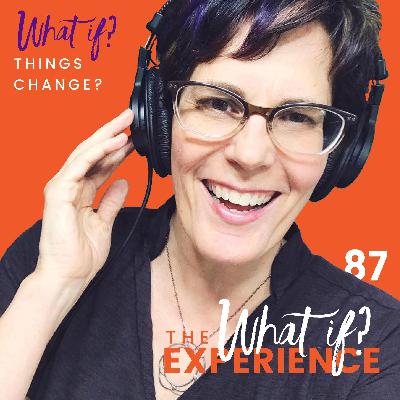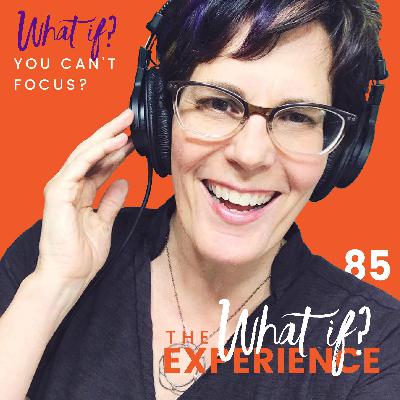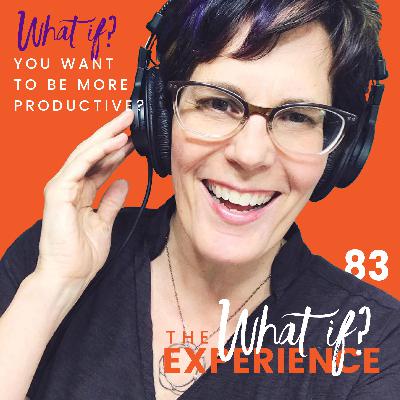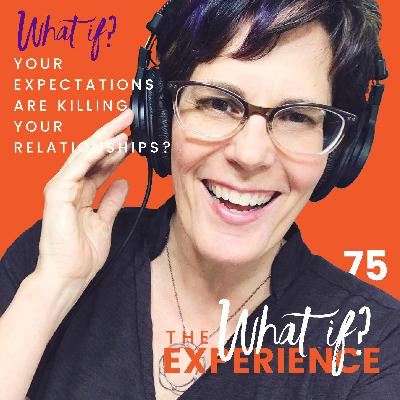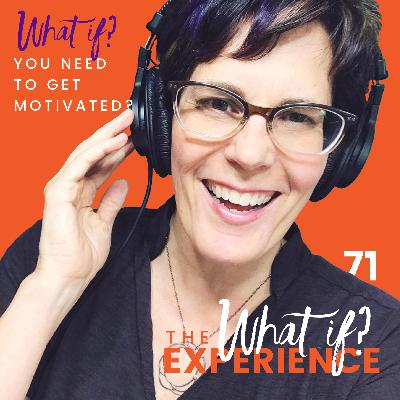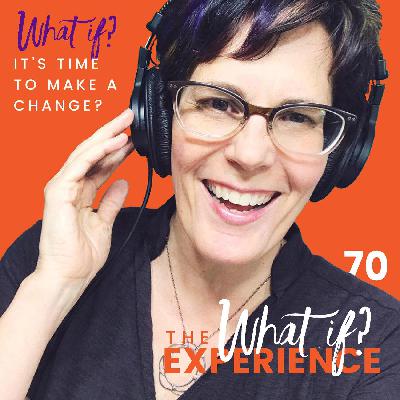What If You Set Goals In January?
Description
Spring has sprung here in Middle Tennessee. As I work on this episode, it’s pouring down rain, we have flash flood warnings, and we expect up to 4” to fall tonight and tomorrow. It’s going to drown out the daffodils and cherry blossoms I’m afraid. What that really means for me is that allergy season is underway in one of the worst parts of the country for allergy sufferers like me. And what that means for you is that you get to suffer through a month of me sounding stuffed up. I’ll do my best to spare you. But April Fool’s Day on the horizon also means that the first quarter of 2018 has vanished. POOF! Gone! Just like that!
Most people’s New Year’s resolutions or goals don’t make it out of January alive, and I told you when we were talking about it a few months ago, that I’d update you as we went through the year on my progress with my goals and how I stay on track. We're in a month with 5 Sundays and I thought I’d take this first week of the quarter to do some reflection and check in on my progress.
Rhythm of Reflection
Whether you care how I’m doing on my goals or not, that’s the first key thing I want to remind you of today. Creating a rhythm of reflection in your life is really important for your personal, emotional, spiritual and intellectual growth. I think I spoke about this in an episode a long time ago, I’ll try to find that one and link it up in the show notes, but if growth in any area of your life is important to you, you need to spend some time reflecting on that area of your life on a regular basis.
Self-reflection is deliberate thinking about your own behavior and beliefs. We’re not used to doing that in our culture. It requires slowing down. It requires vulnerability, courage, and discipline. But without it, without a rhythm of reflection, growth is haphazard at best and learning doesn't happen. Here are five important tips to keep in mind:
- Know your why. We’ve talked about this a million times before, but if you’re clear on your own values, it’s a lot easier to point yourself in the right direction and to stay on that course. Without knowing what’s important, every little side path can turn into a Stephen King lost in the woods story.
- Be honest with yourself. It’s far too easy to wear the same mask for yourself as you wear in front of others. Far too easy to posture, lie and make excuses. But, you only hurt yourself by doing that. Be brutally honest with yourself.
- At the same time, be kind and forgiving. Self-reflection is not self-flagellation. No beating yourself up. The idea is evaluation and strategy, not judgment.
- Look for behavior patterns. I know, for instance, that I have an easy time starting things and a hard time finishing. So, the first few months of change making is much easier for me. Knowing that, I can adjust my strategies and bring in the big guns when the “newness” of a thing wears off. Watch for those patterns in your life so that you can use that awareness to help what you want to happen come to be and minimize what you don’t want.
- And, lastly, (suppress your groans) I want you to write it down. Writing helps for several reasons. It solidifies ideas. It helps remind you where you’ve been, where you want to go and what you’re supposed to be doing to get there. It helps you learn and remember what you’re working on. Students who hand write notes do better on tests than even those who type notes. There’s something in the process of writing that solidifies knowledge in the brain.
I’m not doing a general self-reflection today, but more a peek into the process I use specifically to keep my goals on track. I spend about a half hour at the end of each month doing this. Because it’s the end of a quarter, though, I have one extra step.
Review Process
First, I review my goals. I set my goals a little differently this year. Usually, I’d do some dreaming about what I want my life to be like, then I’d evaluate my life in different categories, like work, relationships, finances, etc. I’d figure out how to get closer to that dream and then I’d create goals in each of those categories. This year, however, I did something totally different. Back in episode 62, I talked about creating five commandments to live by. I named five things that if I’m doing these five things consistently, my life will have been lived well. Then I created goals in each of these five areas.
My five commandments are: love God, prioritize people, spend intentionally, choose health and create consistently. Typically, in this step, I’m reminding myself of what I said I wanted to accomplish. But, since this is a quarterly review, today, I’m doing more than refreshing my memory, I’m taking a deeper look and asking questions as well. Is this goal still valid? Is this really the path I want to be on? Circumstances change over time, and new priorities can crop up. For example, I’d specifically not set any work or career goals this year. It wasn’t where I wanted to put my focus. But, some things have changed in the last three months that have brought that to the very top of my list.
The first step is to go through each of my goals and check their validity and my progress. So, I’ll go with the first as an example. That first commandment is to love God. One of the reasons I’ve pulled back from work goals in 2018 is that I’ve taken on a ton of ministry responsibilities in the past twelve months. Part-time job-ish commitments, probably 20 hours a week. It’s very, very easy to get so busy giving and serving, that you lose track of your own relationship with God and you crash and burn in a variety of ways. My goal is to cement my own relationship time, not study, writing, team-leading, or serving time, but relationship time. I’ve been semi-successful. The first six weeks of the year were spot on and the last six, not as much. Is it still valid? This is still a critical goal for me, so I need to recommit to it and get back on the wagon.
I’ll do one more. Because I chose health to go through in episode 69 when we were talking about a plan t0 make permanent changes, I’ll review that for you. Up until this month, I’d been on a seven-month binge of really bad health choices, I’d gained 25-30 pounds, and was feeling wretched. To kickstart myself, I started a 30 day challenge on Facebook with a group of people that wanted to join me and I’ve met all of my March goals, I’ve made healthy choices for more than 25 days in the month, I’ve been exercising five or six days a week, I’ve lost close to ten pounds by the time this airs, and most importantly, I’m feeling a lot better. This one’s still important and I’ll be continuing what I’m doing in April. If you’re listening to this in April of 2018 and you'd like to join us, it’s free and you can sign up here.
It takes me a lot less time to mentally process that than talk through it. It’s asking myself:
- How have I been doing?
- Is it still important?
- Do I need to change how much attention I give to this right now?
The first two questions are the difference between a quarterly and a monthly review. On any given month, I’ll look at the goals and evaluate my progress, but not necessarily be checking in on the validity of the goal itself.
When I have that done, I run through a series of exercises in Cultivate What Matters Powersheets (a tool I mentioned in episode 66). Basically, I review the previous month, the good and bad. I put down in writing anything that’s stressing or bothering me. I look at my calendar and then I write down what I need to accomplish this month. Then, the key task, I create a month-long task list. This includes daily tasks or habits I want to cultivate in the upcoming month, weekly things I need to do, and monthly tasks—which I assign to which week I’ll accomplish them within the month. Then, I pull out the habit trackers I created in January and fill it out for daily tasks I listed and then place it in my journal/planner.
I see the daily task tracker in my journal each day. Weekly tasks tend to be scheduling issues, like making sure I send ministry emails, prep and print small group discussion pages, or work on this podcast. Weekly things tend to get done without this process, so the daily and monthly tasks are where I spend my attention. Sunday evenings, I usually set up my week in my planner, so I check my monthly tasks at that time to see what I need to focus on that week.
And that’s it, that’s my monthly process. It takes about 20 - 30 minutes at the end of each month and keeps me on track throughout the year while being flexible enough to adjust to changes and circumstances.
Where I'm Going
Back in episode 64, I mentioned that the gaps between how I wanted to be living and how I am living are biggest in two areas. Spending intentionally, (mostly about time) and choosing health. I’ve already shared that I’m doing well on choosing health now and I feel really good about that.
Spending intentionally, I’ve still got some work to do. April is going to be a super busy month for me. I have house guests coming, two out of town trips and dog sitting for a dog trainer friend of mine. Usually, that involves five to eight dogs at a time. At the same time, I’m starting two educational courses in April, and it’s the onslaught of the busiest time of the school year for my son. This is all on t


